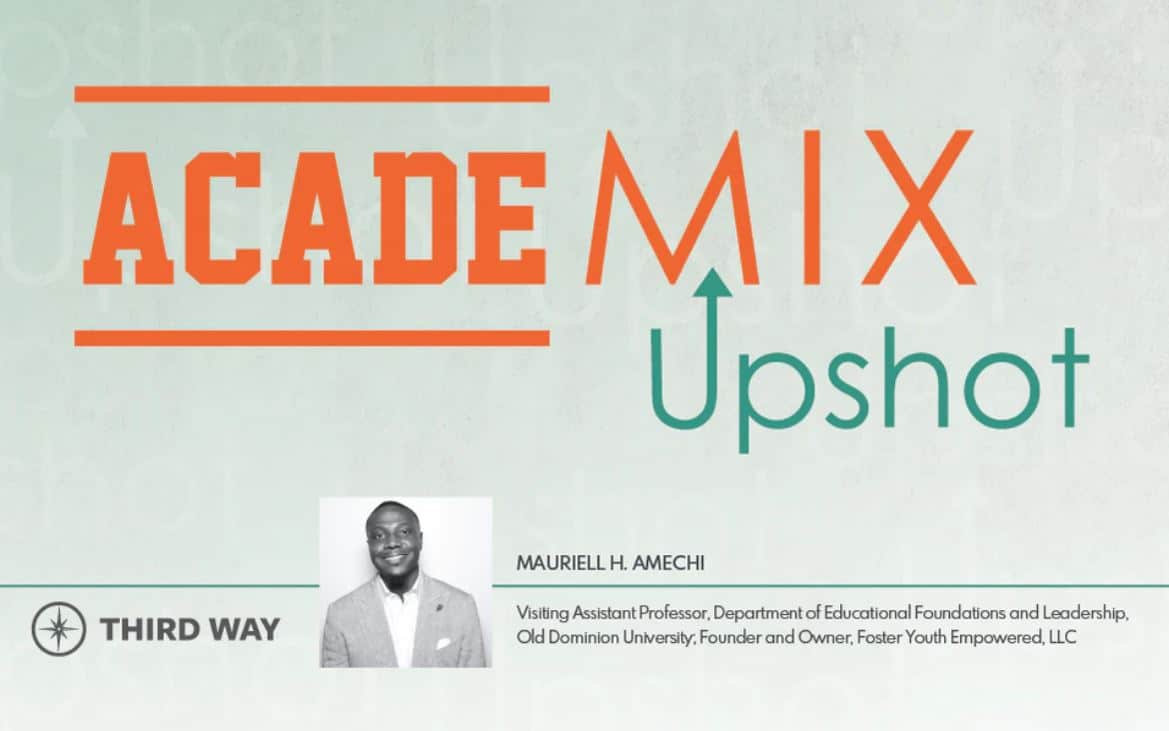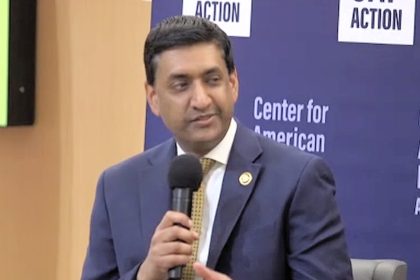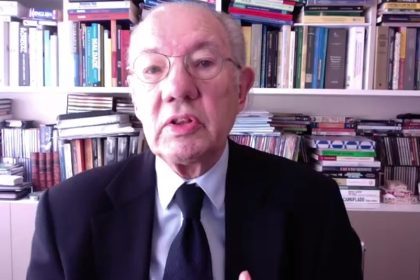Third Way Hosts First Installment of Virtual “Wine with Wonks” Series

WASHINGTON – Third Way, a Washington D.C.- based think tank, launched its inaugural “Wine with Wonks” virtual series this week that features scholars from its ACADEMIX Upshot series in an effort to promote their research and explore various education topics in a round-robin style of discussion groups.
The ACADEMIC Upshot series is a short form research series that was launched earlier this year to examine the impact of COVID-19 on America’s education system.
According to Third Way, research featured in the ACADEMIX Upshot series is aimed, “to equip lawmakers with the actionable, evidence-based information they need to consider how their decisions will impact student outcomes and the behavior of colleges and universities by partnering with academic researchers to deliver timely and relevant information.”
“We established our ‘Wine with Wonks’ event series as an opportunity to dissect very wonky higher ed topics, like negotiated rulemaking, accreditation, admissions and recruiting, and the cohort default rate, and make them more accessible to Hill staffers, press, and friends from the policy/advocacy community in DC,” explains Nicole Siegel, the senior education communications manager for the ACADEMIX Upshot series.
Siegel continued, “Pre-COVID, the format of these events was in the style of a reception, inviting guests to move freely around the room to converse with our expert wonks.
“Incorporating the interactive elements of this event series into a virtual setting was key to ensuring policymakers, press, and other stakeholders had an opportunity to connect and learn from academic scholars.”
Among the topics explored for the inaugural virtual installment of the “Wine with Wonks” series included the shift to online education, the vulnerability of regional public universities, the long-term effects of investing in financial aid, as well as the impact that the coronavirus pandemic has had on young adults aging out of foster care.
In Dr. Mauriell Amechi’s “The Forgotten Students: COVID-19 Response for Youth and Young Adults Aging Out of Foster Care,” the policy brief outlines the difficulties young adults are facing amid the pandemic as they age out of the foster care system. Included in Amechi’s brief are excerpts of testimony from former foster youth reflecting on the challenges they have faced in recent months.
“COVID-19 has recently changed my life because, to be honest, it has triggered a lot of past childhood traumas,” says Ivory Bennett, a member of the National Foster Youth Initiative.
“For example, food insecurity, I don’t feel like I have access to enough food all the time. I feel nervous having to either go out and get it or spend extra money on delivery services.”
“I wish the government did a better job in assisting foster youth, so when things like [the coronavirus pandemic] happen, they aren’t pushed to the backline or it’s not as hard on [us],” stated Michael Thomas, another member of the National Foster Youth Initiative.
“[As] an at-risk population, we have to fight so much harder because, for some reason, our voices never really get heard to the full force until something happens. And I wish it was different,” added Thomas.
In an interview with The Well News, Amechi explained his intention of including testimony from former foster care youth.
“Centering foster youth as experts on their lived experience allows them to have a voice in decision-making processes that affect them,” stated Amechi. “Humanizing statistical evidence is critical to fully understanding complex problems.
“All too often, public discourse, research journals, films, and other various forms of media paint a monolithic, bleak, and hopeless portrait of youth and young adults impacted by child welfare systems.
“As a contributor to Third Way’s ACADEMIX Upshot series, one of my goals was to craft a brief that drew upon the voices of individuals with lived experience in foster care.”
In his discussion with “Wine with Wonks” participants, Amechi reiterated his policy recommendations of a nationwide extension of foster care benefits to age 21, as well as a strengthening of postsecondary data that can help provide a clearer picture of the experiences and outcomes of students with foster care experience nationally.
Additionally, Amechi’s brief stated that Congress should pass H.R. 6766 and H.R. 7947 to provide additional funding towards the Chafee program, which provides essential resources for foster care youth entering adulthood.
“Federal policymakers must consider the vast number of young adults aging out of foster care and entering adulthood during the coronavirus pandemic,” reads Amechi’s brief.
“Without sufficient resources, support, and preparation for independent living and access to higher education, many will encounter roadblocks even more detrimental than those they face during regular economic times.”
Dr. Oded Gurantz, assistant professor at the University of Missouri, presented his research findings and recommendations from his brief, “Paying for Itself: How Financial Aid is a Smart Investment in Our Nation’s Future.”
Gurantz outlined the successes of the Cal Grant program, a financial aid program in California that covers the charges of “full tuition and fees at any in-state four-year public college or provides a tuition subsidy for private school enrollment of roughly $10,000 per year.”
Gurantz explained that over his 15-year study of the Cal grant program, the investment in financial aid for eligible students yielded significant results such as increases in graduation rates and an increased likelihood of students attending graduate school.
“Financial aid programs produce positive impacts on education and employment outcomes and can even pay for themselves through increased tax revenues—provided that policymakers are willing to take the long view,” noted Gurantz in his brief.
“As such, it is important that policymakers do not cut back on financial support at this crucial juncture, even as government budgets are increasingly strained,” continued the brief.
The “Wine with Wonks” virtual series with Third Way experts will continue in 2021. For those looking to participate in future “Wine with Wonks” events, future calendar dates will be announced on Third Way’s website.
To find out more about the ACADEMIX Upshot series, visit Third Way’s ACADEMIX Upshot page.
























